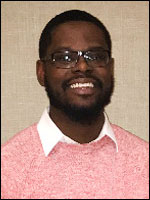A Missing Piece: Integrating Restorative Practices into Student Leadership and Training Programs
Duration: 1 hour
Facilitator: Kaleigh Mrowka and Amery Thompson
Price: $50.00
Overview:
This session will discuss the integration of restorative and relational pedagogies to student staff training
programs. Proactive restorative practices provide opportunities for the building of community, relationships, and a sense of belonging. They can lead to increased participation, investment, and satisfaction for student leaders and student staff within organizations. During this session, participants will learn important language and strategies to incorporate restorative practices into their training and leadership sessions and consider different ways of engaging with student leaders and student staff members.
Restorative practices are a relational framework grounded in interdisciplinary theories and collective processes. When used to create spaces for engaged learning, inclusive decision-making, and social capital building, restorative practices have the potential to transform communities and systems by allowing community members to maintain and sustain relationships even when harm has occurred. Restorative pedagogy and strategy have been applied in many different contexts within and outside of higher education as a way to increase community investment, wellbeing, and organizational culture. Participants will leave this session with an understanding of the potential of applying restorative practices to their training and leadership programs.
Outline:
- Overview of Restorative Practices and Components of Restorative Practices
- Discussion of relational pedagogy and critical pedagogy
- Application of learned concepts to student staff leadership and training programs
- Examples of integration and assessed success
Learning outcomes:
Participants will be able to…
- Describe the components of restorative practices as it relates to relational pedagogy
within training - Explain the benefits of using relational pedagogy for student staff training
- Identify three examples of integrating restorative practices into student staff training and
leadership programs
Who should attend:
Student affairs professionals responsible for student staff training, supervision, or leadership program
development.
Presenters:
 Kaleigh Mrowka is Assistant Director for Student Engagement, University Honors at the University of Maryland. She oversees co-curricular and extracurricular programming that aims to foster student leadership, facilitate professional development, support student health and wellbeing, engage program alumni, and cultivate an inclusive and vibrant community. Before joining the University Honors team, Mrowka worked at the University of Maryland – Baltimore County (UMBC) and Saint Louis University in roles focused on building engaged residential communities. Her professional and research interests center around the development and maintenance of healthy communities through the use of restorative practices, integrative learning, and intergroup dialogue. Mrowka holds a BA in Speech Communication from Ithaca College, an MS in Higher Education and Student Affairs Administration from SUNY Buffalo State, and is currently completing a PhD in Language, Literacy, and Culture at UMBC.
Kaleigh Mrowka is Assistant Director for Student Engagement, University Honors at the University of Maryland. She oversees co-curricular and extracurricular programming that aims to foster student leadership, facilitate professional development, support student health and wellbeing, engage program alumni, and cultivate an inclusive and vibrant community. Before joining the University Honors team, Mrowka worked at the University of Maryland – Baltimore County (UMBC) and Saint Louis University in roles focused on building engaged residential communities. Her professional and research interests center around the development and maintenance of healthy communities through the use of restorative practices, integrative learning, and intergroup dialogue. Mrowka holds a BA in Speech Communication from Ithaca College, an MS in Higher Education and Student Affairs Administration from SUNY Buffalo State, and is currently completing a PhD in Language, Literacy, and Culture at UMBC.
 Amery Thompson serves as the Community Director of Harbor Hall at the University of Maryland Baltimore County (UMBC). In his work as a Community Director and as an Advisor for two student organizations Amery's work is deeply rooted in restorative practices as he along with his student staff and club members co-create an experience for the diverse populations they serve, encouraging the proper use of feedback from those in the experience to best serve the campus communities during their time together. Amery has received his M.A. in Higher Education Administration from William Paterson University and a B.S. in Business Administration with a Marketing Concentration from Montclair State University.
Amery Thompson serves as the Community Director of Harbor Hall at the University of Maryland Baltimore County (UMBC). In his work as a Community Director and as an Advisor for two student organizations Amery's work is deeply rooted in restorative practices as he along with his student staff and club members co-create an experience for the diverse populations they serve, encouraging the proper use of feedback from those in the experience to best serve the campus communities during their time together. Amery has received his M.A. in Higher Education Administration from William Paterson University and a B.S. in Business Administration with a Marketing Concentration from Montclair State University.
